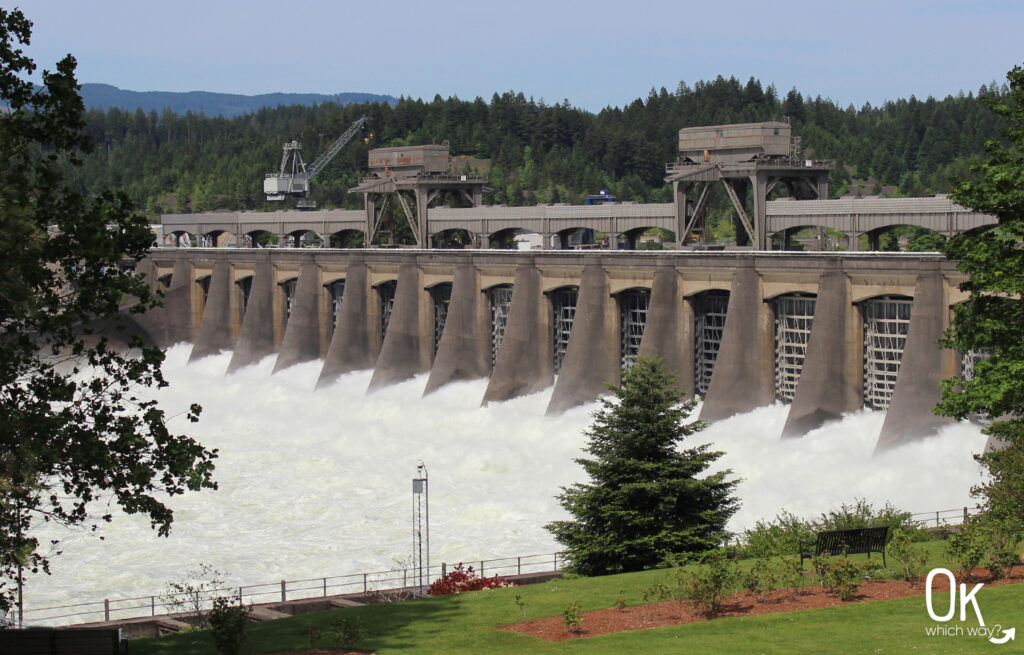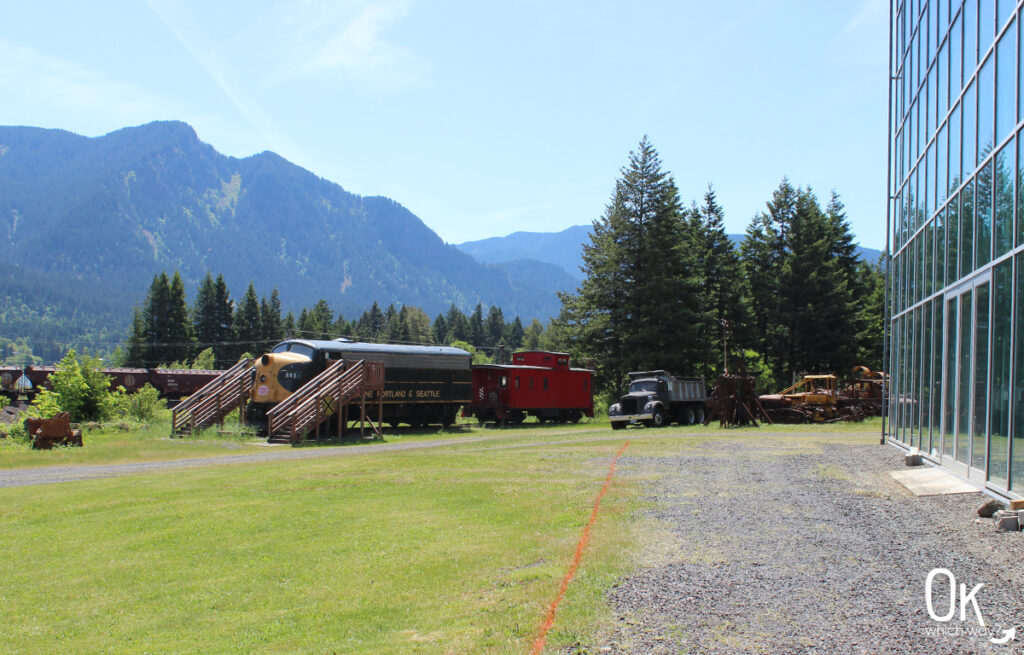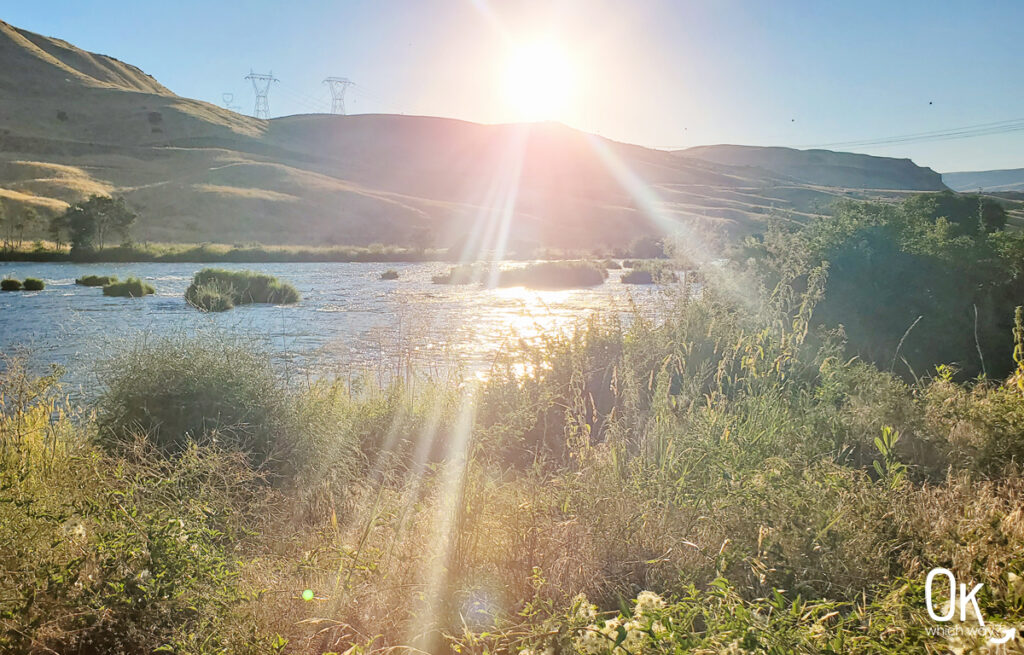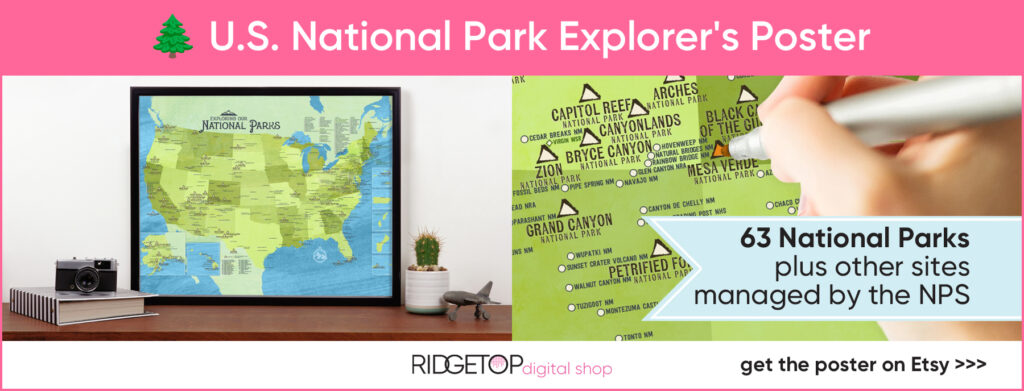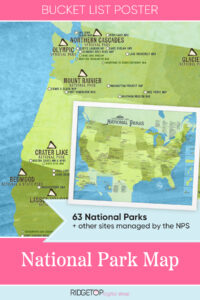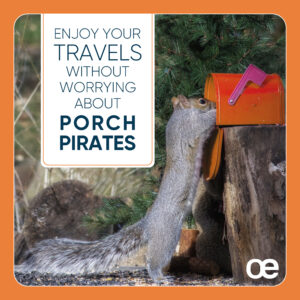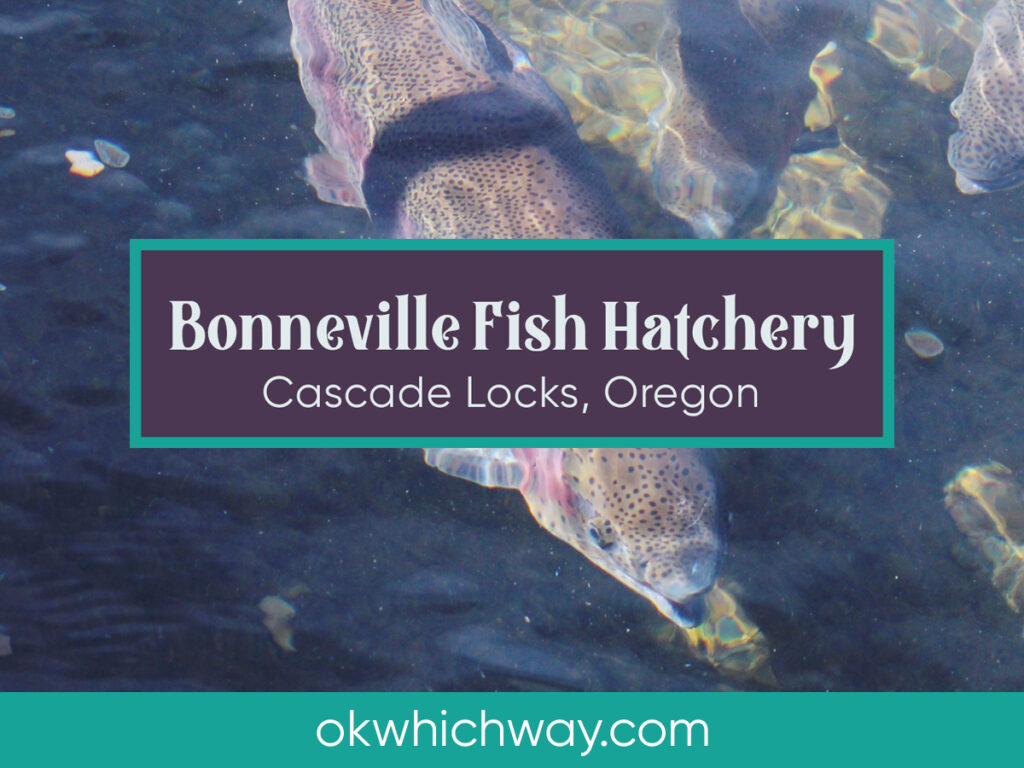
Visiting Bonneville Fish Hatchery in Oregon
The Bonneville Fish Hatchery is a great place to stop during your travels along 1-84. It sits on Tanner Creek, close to where it empties into the Columbia River. The grounds are lovely to walk around and have a picnic, as well as explore the hatchery.
This post may contain affiliate links. When you make a purchase using one of these affiliate links, we get paid a small commission at no extra cost to you.
This hatchery is Oregon’s largest and has been around for over 100 years. Hatched here are Coho Salmon and Chinook Salmon for release in the Columbia River. Some young fish are also sent to other hatcheries.
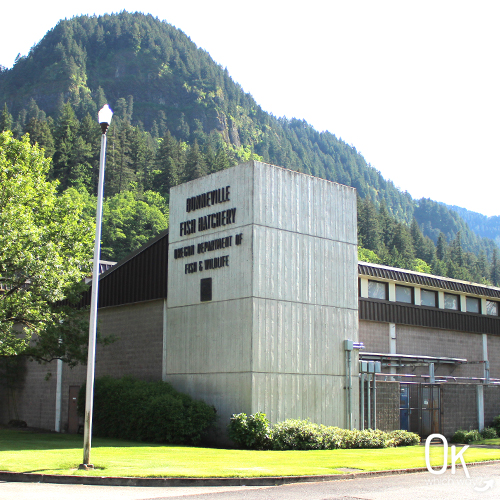
Visiting Bonneville Fish Hatchery
Location: Right off I-84, about 5 miles west of Cascade Locks
Originally Built: 1909
Managed By: Oregon Fish & Wildlife
Parking: free parking in the lots
Entrance Fee: free
Amenities: Restrooms and picnic tables
The gates open to Bonneville Fish Hatchery at 7:30am each day. There is no fee to visit and you can explore at your leisure as the tour is self guided. Take a little time to see interpretive displays, rainbow trout, Herman the sturgeon, and find a little something in the gift shop.
REARING PONDS
The rearing ponds are used for coho salmon and fall Chinook, and other fish as needed.
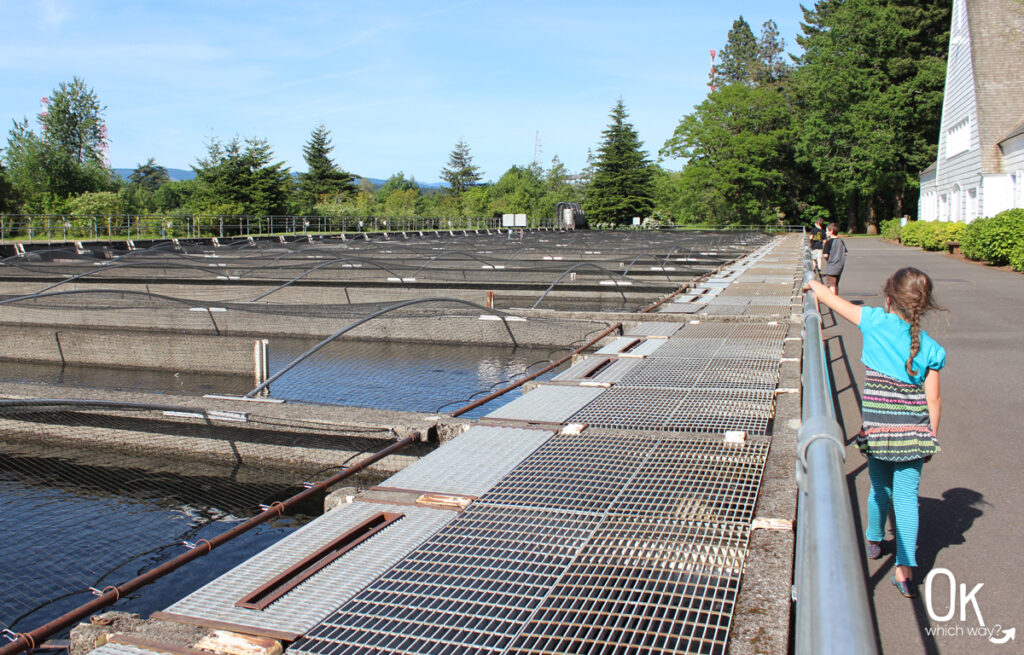
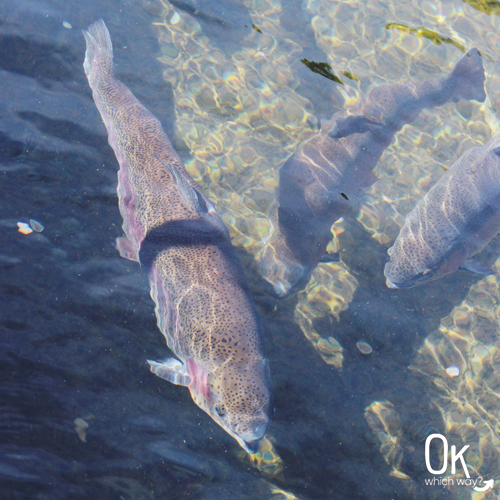
SPAWNING BUILDING
Spawning takes place during the fall. If you visit during other times of year, not much is happening in the building. But, you can watch a video on the spawning process at the hatchery. The video is a bit graphic, but very informative. The part that I remember most is fertilization of the salmon egg. Many eggs from females are held in a bucket. The sperm from the males have been collected in a cup. The sperm cup is then dumped into the bucket of eggs. Voilà, fertilized fish eggs.
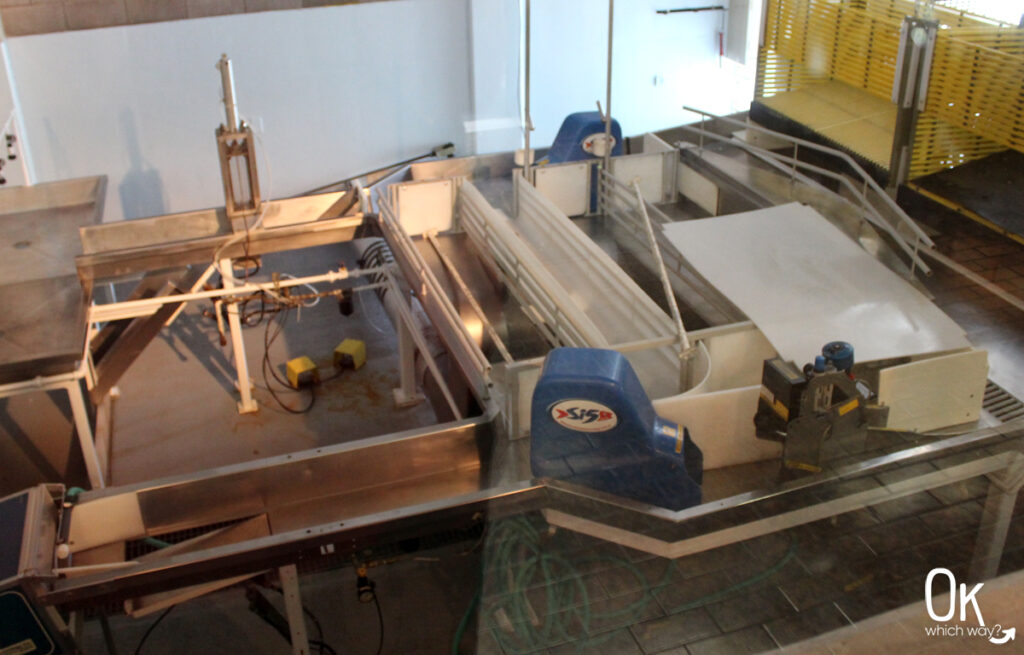
STURGEON VIEWING & INTERPRETIVE CENTER
Inside a little white building is an underwater viewing area where you can watch fish doing fish things. There are trout and sturgeon, including 500 pound Herman the Sturgeon.
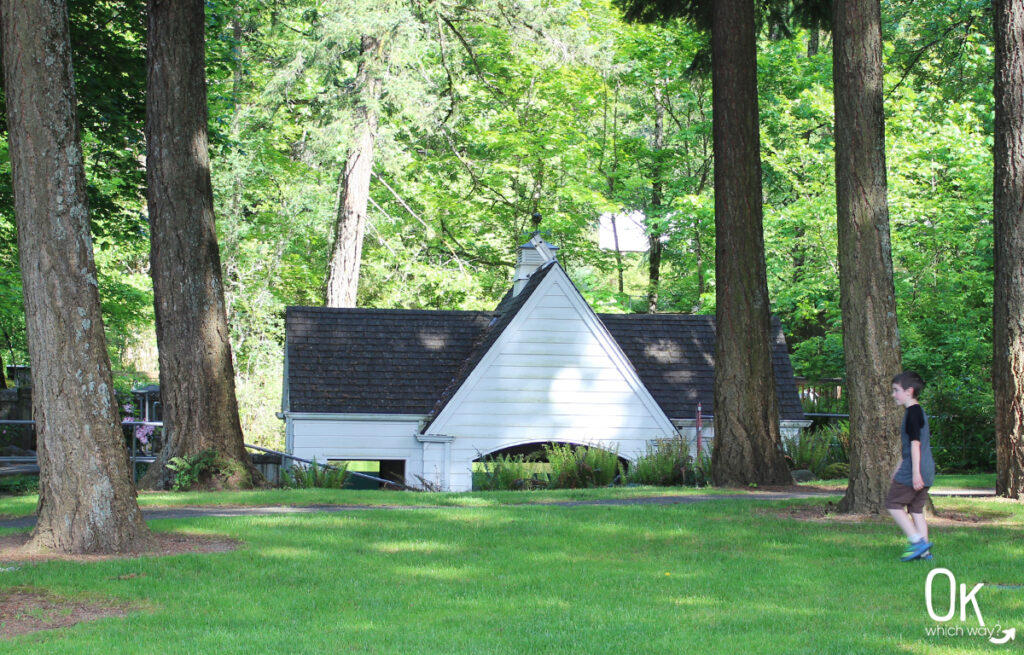
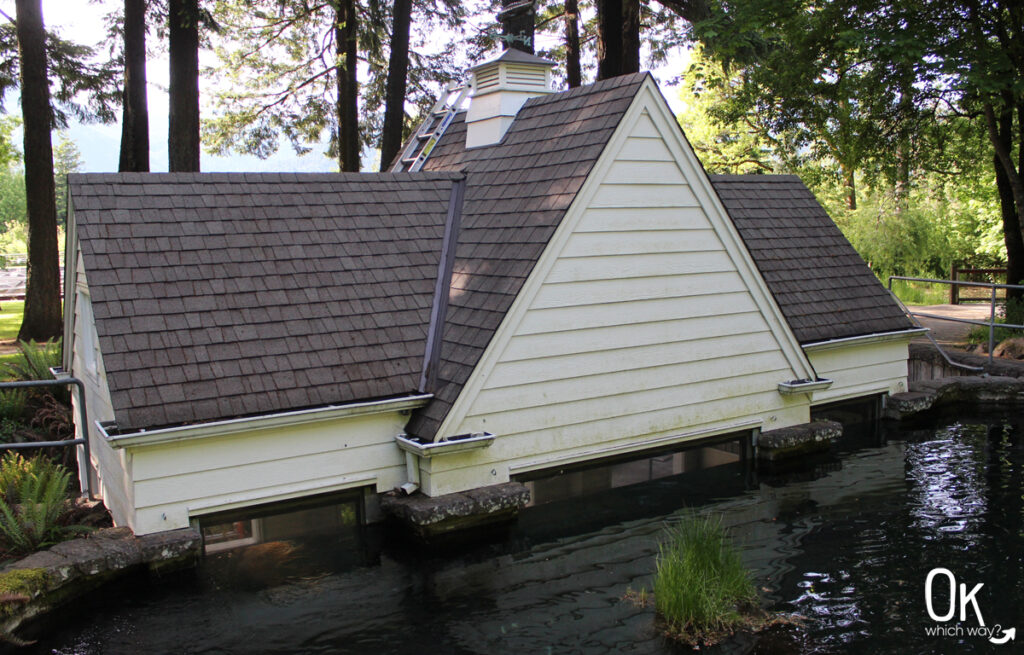
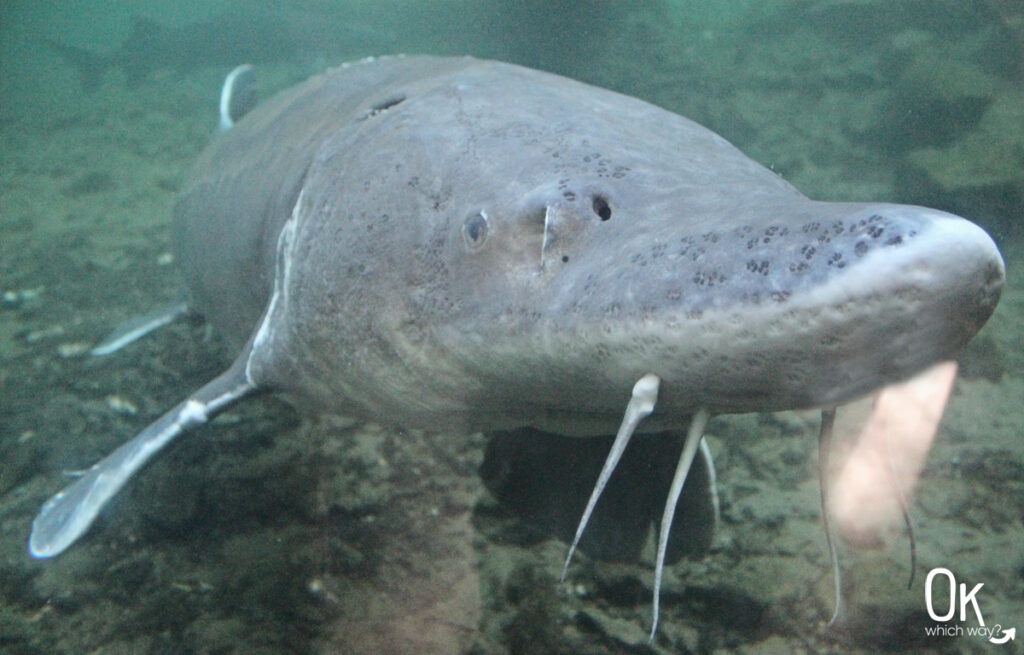
Historical Site
Lewis and Clark camped in this area on April 9, 1806 as they made their way towards the Pacific Ocean.
Places to Visit near Bonneville Fish Hatchery

